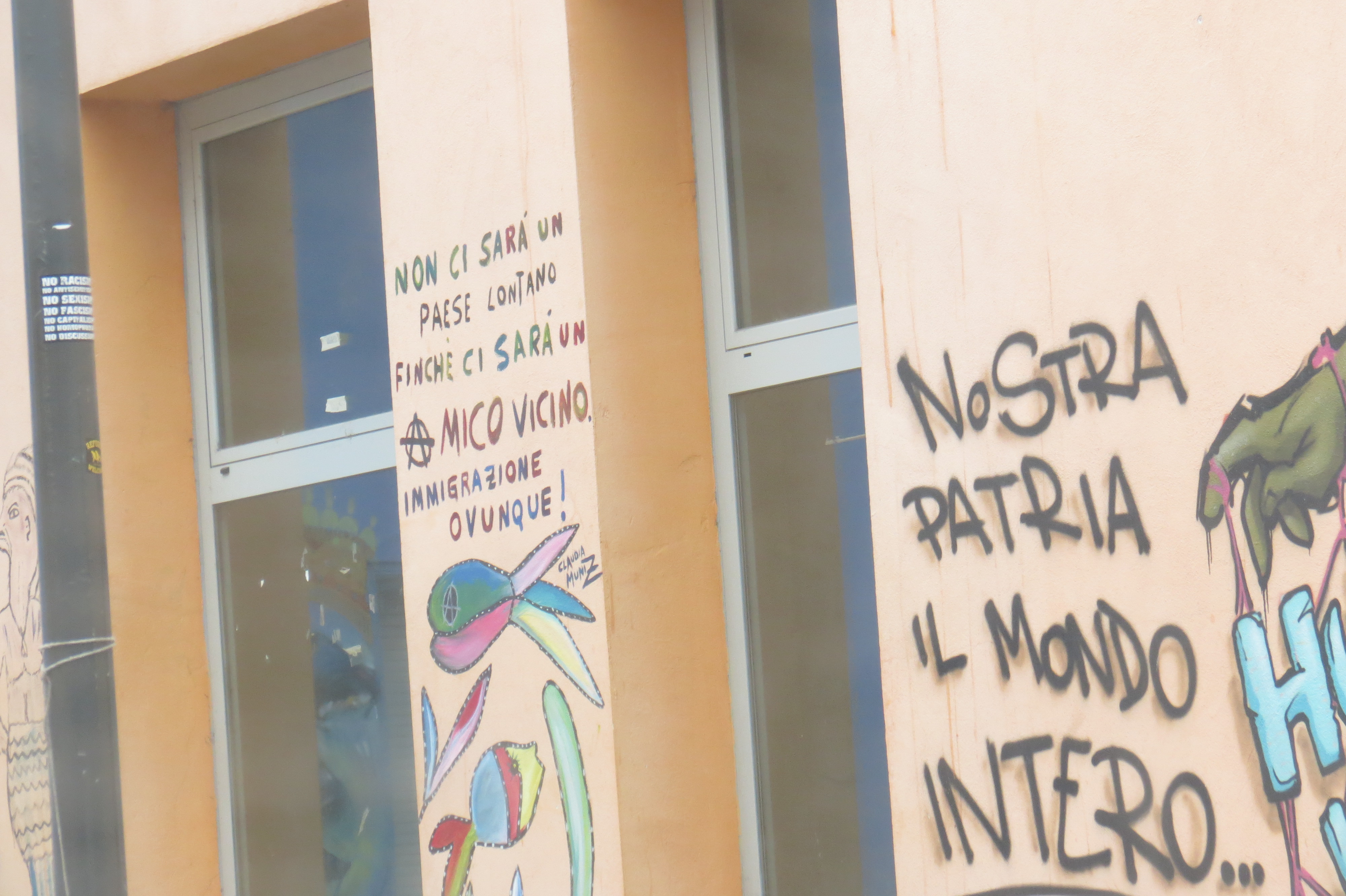By Akela Lacy, c/0 2015
This past winter break I had the opportunity to combine my interests in journalism, human rights and Italian. As part of William and Mary’s Sharp Journalism Seminar in conjunction with the Pulitzer Center on Crisis Reporting, I traveled to Turin, Italy to conduct research on immigration from the Middle East and North Africa to Europe. I wanted to understand what kinds of challenges immigrants faced, what life was like for someone who fled persecution in their home country only to find further hardship in a new, strange place.
I became interested in immigration to Europe and to Italy in particular after the summer of 2014 when I started hearing news story after news story of boats carrying migrants sinking on their journeys from Libya to Italy. I didn’t understand why people were leaving their homes, why they were going to Europe, or why they were losing their lives. With help from the Pulitzer Center, extensive guidance and support from Professor Boyle and Professor Seger, and a generous sponsorship from the Charles Center and Anne and Barry Sharp, I went to Turin in January of this year to conduct interviews and further research to understand what was going on. There were many professionals writing on the politics of the issue, on the conflicts forcing people to flee, and even providing some personal accounts by people making the journey themselves. I wanted to take this opportunity to explore for myself and to push myself to use my Italian to connect with others.

Before leaving I was in contact with lawyers, legislators, researchers, religious and cultural organizations and even students in Turin who were working to understand what was quickly becoming Italy’s “immigration problem.” I set up a few meetings to talk with them once I arrived in Turin, but my ultimate goal was to talk with someone who was living this “problem.”
By chance I met a woman named Judith Trinchero, an ex-pat Wellesley alumna whose undergraduate teaching stint in Italy turned into a lifelong stay. She was part of a group of Italian citizens who were deeply involved with Turin’s immigrant community, paying frequent visits to the houses where immigrant men and women were living, helping them with basic needs and trying to ease their transitions. Thanks to her I was able to travel to Turin’s abandoned olympic village – known locally as “ex-Moi” – where around 400 migrants found temporary find homes. I spoke with several men living there who were willing to share their experiences with me. Below is an excerpt from one of their stories:
Mohammad S. wakes up at 3 or 4 in the morning and takes the local bus about an hour away to his landscaping job. He asks that his full name not be used in order to protect his identity. He has only been in Italy for three years, and the documents allowing him to work legally will expire within the month. He has come to Mosaico, an organization run by refugees to help newcomers in Italy, for advice regarding his permit to work. He explains in a defeated voice that “Sudan was better…even with war.”
One of an imploding number of refugees arriving on Italy’s shores since 2011, Mohammad S. worries daily about his future. He fled his home country of Sudan to find work in Libya, forced by the Libyan military to come to Italy after war broke out in 2011. He slept on the streets before finding temporary shelter. “Tanto volte non dormo mai”—“Many nights I don’t sleep at all.” Why? “Too many thoughts.” Where he hopes to be in a month? “Spero di essere morto. Quando state qua non c’è futuro.”—“I hope to be dead. When you are here there is no future.”
I conducted all of my interviews in Italian, with help from Professor Boyle and Seger in developing questions and finding the right words to ask them. I would never have given thought to taking on this research without inspiration from my classes in the Italian Department, or without having spent time studying abroad during the fall of 2013 in Perugia. I look back on this experience as a reflection of my studies in both the Italian and Sociology departments at William & Mary. My professors in each department have helped me to think in new ways that connect ideas and issues that are seemingly disconnected. This may be the accomplishment I’m most proud of so far! I hope other students will take advantage of similar opportunities to connect modern languages with their work in other disciplines, and to continue using modern languages outside of the classroom.
You can find the rest of my story and others from this and past years’ Sharp Seminars here.
Akela Lacy
Sociology major, Italian Studies minor
William & Mary class of 2015
